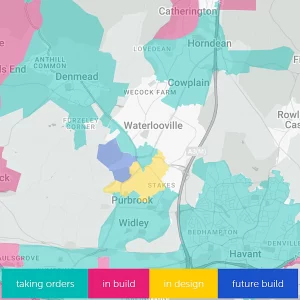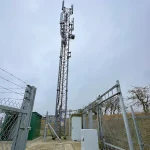Sponsored Links
BT Toys with Sub Loop Unbundling Prices for UK Rural Broadband ISPs
Posted: 06th Sep, 2011 By: MarkJ

 BTOpenreach, which is responsible for managing access to BT's local UK telecoms network, has concluded a vital review of its Sub-Loop Unbundling (SLU) connection charges for rural broadband ISPs by putting some of its prices up and lowering others.
BTOpenreach, which is responsible for managing access to BT's local UK telecoms network, has concluded a vital review of its Sub-Loop Unbundling (SLU) connection charges for rural broadband ISPs by putting some of its prices up and lowering others.Sub-Loop Unbundling isn't something that most people will be familiar with but it's very important, especially in isolated rural areas. It allows ISPs, such as Rutland Telecom or Fluidata UK, to build and control their own street cabinet right next door to one of BT's own. This allows smaller ISPs to bring faster broadband services to areas that BT might have otherwise ignored.
Some of these smaller providers complain that BT's prices for SLU services are too high and, following a formal dispute by DRL/Thales earlier this year, Ofcom issued a Determination that forced BT to review its prices. As a result the following changes have been made and some ISPs are unlikely to be happy with the outcome.

As with ordinary Local Loop Unbundling ( LLU ), which frees big providers like Sky Broadband and O2 from BT's control (albeit without needing to build their own cabinets), SLU comes in both a shared (SLU-SMPF) and fully unbundled (SLU-MPF) form. The latter costs more because it allows ISPs maximum freedom and means that BT loses much of its key remote access control over related customer lines.
Crucially it's the SLU-MPF method that many smaller ISPs regard as being the most attractive for long-term investment and enhancement. Rutland Telecom used this method to deliver superfast (40Mbps) FTTC broadband services to the isolated rural village of Lyddington for £37,000 last year (here), which is something that BT would have found economically unviable. Cynics will be unsurprised to see that this is where the latest price rise has hit hardest.
Separately BT has also called time on a trial of SLU batch ordering due to a lack of demand, which is probably because the prices were quite high and the SLU market is fairly young.
Search ISP News
Search ISP Listings
Search ISP Reviews
Latest UK ISP News








Cheap BIG ISPs for 100Mbps+
150,000+ Customers | View More ISPs
Cheapest ISPs for 100Mbps+
Modest Availability | View More ISPs
Latest UK ISP News
Helpful ISP Guides and Tips
Sponsored Links
The Top 15 Category Tags
- FTTP (6800)
- BT (3881)
- Politics (3075)
- Business (2767)
- Openreach (2663)
- Building Digital UK (2512)
- Mobile Broadband (2475)
- FTTC (2142)
- Statistics (2128)
- 4G (2092)
- Virgin Media (2024)
- Ofcom Regulation (1779)
- 5G (1732)
- Fibre Optic (1604)
- Wireless Internet (1595)
Sponsored
Copyright © 1999 to Present - ISPreview.co.uk - All Rights Reserved - Terms , Privacy and Cookie Policy , Links , Website Rules






























